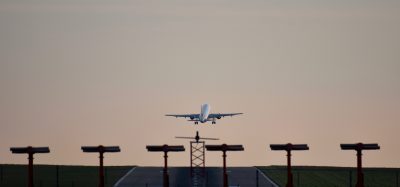CAA calls on airports to use landing charges to encourage cleaner, quieter flights
Posted: 15 October 2013 | CAA | No comments yet
“…the aviation industry needs to do more to tackle its environmental impacts…”


UK airports should use their landing charges to offer better incentives for airlines to operate cleaner and quieter flights, says a new report released by the UK Civil Aviation Authority (CAA) today.
The report follows the Department for Transport’s (DfT) Aviation Policy Framework published in March this year, which suggested airports consider using differential landing charges to incentivise quieter aircraft. The CAA has since reviewed the noise and emission elements of landing charges at six of the UK’s busiest airports and has published in its report a set of good practice principles for airports to encourage airlines to operate more environmentally friendly flights.
During the review, the CAA found approaches to the environmental elements of landing charges varied greatly from one airport to another – with some airports offering greater financial incentives for airlines to use cleaner and quieter aircraft than others.
Join us live: Shaping the Next Generation of Hold Baggage and Air Cargo Screening
Join us live for an insightful webinar on 11th December at 14:00 GMT, in collaboration with Smiths Detection, as we explore the strategic balance of operational efficiency, regulatory compliance, and sustainability in high-volume security environments.
This session offers a focused look into future-proofing your security strategy.
Key learning points
- Cost Reduction: Strategies to minimize bag travel time while simultaneously reducing operational costs.
- Regulatory Roadmap: Insights into the next wave of regulatory changes and their impact on future investment decisions.
- Sustainable Systems: Practical approaches to building sustainability into security systems and lowering the total cost of ownership (TCO).
- Scalable Solutions: Real-world examples of scalable systems supporting current airport growth and preparing for tomorrow.
Register now for expert insights, case studies, and actionable strategies on operational efficiency!
The report also found that whilst some airports used differential landing charges to encourage airlines to operate in the day, others applied reduced landing charges for early morning and night flights – most likely due to differences in demand. This approach therefore gives airlines a financial incentive to fly at times when residents are more sensitive to aircraft noise and could actually increase airlines’ environmental impact on local residents.
With approaches to differential landing charges varying across the six airports reviewed, the CAA is calling for charges to be more consistently linked to impact to maximise the incentives for more environmentally friendly operations.
Dan Edwards, Head of Economic Policy and International Aviation at the CAA, said:
“We are very clear that the aviation industry needs to do more to tackle its environmental impacts, particularly if the sector wishes to grow. This means adopting innovative approaches and using landing charges to encourage cleaner, quieter flights is one way we believe the industry can make a difference.
“Adopting the principles we’ve published in our review will lead to a more consistent approach to noise and emissions landing charges across the UK, with better incentives for airlines and ultimately reducing aviation’s environmental impact on residents.”
The review acknowledges that options to increase incentives for airlines will be restricted to increasing differentials in landing charges, rather than the overall landing charges airlines pay. In addition, airports will need to consider potential trade-offs with economic and consumer choice factors when considering their approach to landing charges.
The CAA’s review looked at six UK airports in total. This included Gatwick, Heathrow and Stansted, which are all designated for noise management restrictions by the Secretary of State for Transport. The remaining airports included in the review are Birmingham, East Midlands and Manchester.
The full review is available here.
Stay Connected with International Airport Review — Subscribe for Free!
Get exclusive access to the latest airport and aviation industry insights from International Airport Review — tailored to your interests.
✅ Expert-Led Webinars – Gain insights from global aviation leaders
✅ Weekly News & Reports – Airport innovation, thought leadership, and industry trends
✅ Exclusive Industry Insights – Discover cutting-edge technologies shaping the future of air travel
✅ International Airport Summit – Join our flagship event to network with industry leaders and explore the latest advancements
Choose the updates that matter most to you.
Sign up now to stay informed, inspired, and connected — all for free!
Thank you for being part of our aviation community. Let’s keep shaping the future of airports together!
Related topics
Related organisations
Civil Aviation Authority (CAA), Department for Transport (DfT)

















